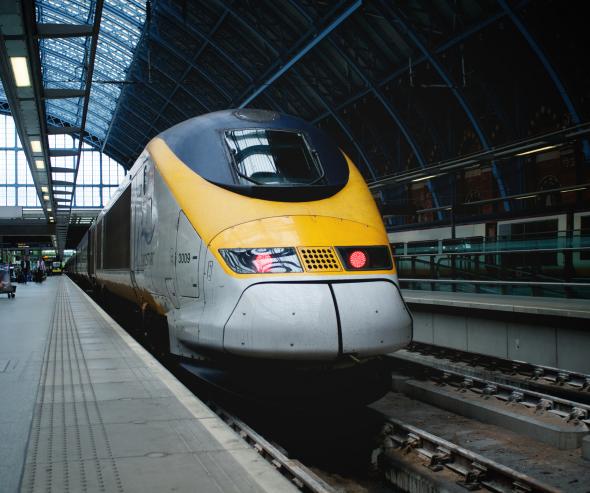26 November 2007: Paris-London

The Conseil de la concurrence considers that Eurostar did not adopt a predatory behaviour aimed at eliminating competition
Following a complaint filed by British Airways on 18 November 2004, concerning an alleged abuse of dominant position on the part of the SNCF and Eurostar Group Ltd (EGL) on the market for passenger transport between Paris and London, the Conseil de la concurrence issues its decision on the merits (1), and considers that the alleged predatory and cross subsidies practices are not established .
British Airways complaint
In its complaint, British Airways argued that, on the one hand, Eurostar offered abnormally low prices which did not cover its costs (predatory pricing), and on the other hand, that Eurostar implemented a policy to saturate its capacities in order to foreclose British Airways from the market.
According to British Airways, that business policy was financed by SNCF subsidies, that the company was able to pay to its unprofitable Eurostar subsidiary due to its monopoly on the French Railway network (cross subsidies).
The Conseil de la concurrence considers that Eurostar has not implemented a predatory strategy with the aim to disrupt or eliminate all competition on Paris-London-line
Although the Conseil considers that Eurostar holds a dominant position on the market for passenger transport on the Paris-London line, it considers that the business policy implemented was not predatory.
Such a strategy would indeed imply, first, that Eurostar rationally accepted to sustain losses in putting more trains than necessary on the network and in selling tickets at abnormally low prices so as to eliminate competition from air transport and, second, consequently increase its prices and recoup its losses. The final aim was to increase its prices significantly and regain the losses suffered.
However, the Conseil observed that Eurostar had not increased its capacities during the relevant time period (2004) but rather reduced its capacity.
As regards Eurostar’s pricing policy, the Conseil considers that it did not have an anticompetitive object or effect on the market. In its analysis, the Conseil has observed that each Eurostar train covers its variable costs but not its total costs because of the fixed costs for the use of the Channel and the British high speed railway lines. The Conseil has observed that Eurostar committed itself to pay fixed costs over a very long period, even if it stopped operating.
Under these circumstances, SNCF and EGL seek to optimize the occupancy rate and total revenues for each train using various management and price fixing tools in order to best cover the costs: because every passenger and each train generate positive revenues, the surplus is being used to partly cover the infrastructure’s fixed cost and thus reduce total loss.
Finally, the Conseil considers that the alleged market disruption resulting from cross subsidies within the SNCF is not established: if air companies have indeed lost market shares, the market increased considerably as a result of the new services offered by Eurostar.
(1) In decision 05-D-11 (16 March 2005), the Conseil had considered that granting interim measures was not justified and partially dismissed the complaint on the merits, in particular as concerns a refusal to give access to billposting.
